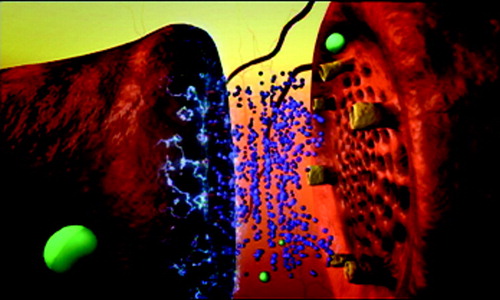Upcoming PBS Series Opens Window on the Brain
 This January, the research behind the Decade of the Brain hits the airwaves in a series that offers television viewers a rare glimpse into nature’s most mysterious and complex mechanism. Airing on PBS stations beginning January 22, “The Secret Life of the Brain” tells the story of the brain from infancy through old age.
This January, the research behind the Decade of the Brain hits the airwaves in a series that offers television viewers a rare glimpse into nature’s most mysterious and complex mechanism. Airing on PBS stations beginning January 22, “The Secret Life of the Brain” tells the story of the brain from infancy through old age.
The five-part series features neuroscientists, psychiatrists, and other experts who describe the research that has advanced the understanding of the brain in recent years.
“The brain is constantly changing throughout life, and that is very exciting,” producer and director David Gruben told Psychiatric News. Gruben said that when he applied for a grant from the National Science Foundation to produce the series, there was a great deal of excitement in the scientific field about data indicating the plasticity of the human brain.
He decided to expand on this theme and present each episode as part of a unique stage in brain development. The series is a coproduction of David Gruben Productions Inc. and Thirteen/WNET New York.
Renowned researcher Steven Hyman, M.D., director of the National Institute of Mental Health, is just one of the experts who discuss the role of the brain in mental illnesses such as schizophrenia and depression.
Personal accounts from people such as author and psychologist Lauren Slater, Ph.D., offer a different perspective and add a human element to the series. Slater has firsthand knowledge of depression both as a mental health professional and as someone who has struggled with the illness throughout her life.
Highlights of each hour-long episode are given below:
• Program One: The Baby’s Brain: Wider Than the Sky. This episode explains the organization of the baby’s brain during the first year of life. It describes how when babies are born prematurely, the brain is not fully developed, and billions of brain cells still need to form connections with other brain cells. Research shows how to best foster these connections that after birth need to take place outside of the womb.
• Program Two: The Child’s Brain: Syllable From Sound. This segment explores how young children learn to talk and read, and which parts of the brain make this type of learning possible. It explains that research on how dyslexic children learn is opening the door to new teaching methods for these youngsters.
Program Three: The Teenage Brain: A World of Their Own. This segment focuses on the prefrontal cortex, that part of the brain that enables people to make judgments and exert self-control. Many parents will not be surprised to find out that this part of the brain is in its crucial development phase during the teen years. This chapter of the series highlights important new research on how the brain functions and malfunctions in teens with schizophrenia and with substance abuse problems.
Program Four: The Adult Brain: To Think by Feeling. This episode centers on the balance between intellect and emotion and follows the lives of two people in whom this balance is lost. One of them is Slater, the writer and psychologist who has fought a life-long battle with depression.
• Program Five: The Aging Brain: Through Many Lives. Even in old age, the brain continues to produce new neurons, scientists have discovered. Researchers explain groundbreaking research on stroke, Alzheimer’s disease, and Parkinson’s disease.
More information on the series, “The Secret Life of the Brain” can be found at www.pbs.org/wnet/brain. ▪



